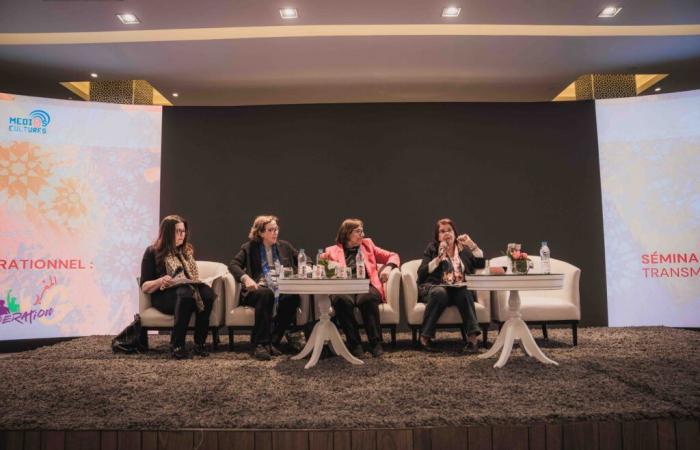The study, carried out by the Coalition, highlights the specificities of each generation of feminists, from the pioneers who structured the movement to the connected generation which uses the web and social networks as the main space for mobilization. The analysis highlights their points of convergence, notably the fight against patriarchy, but also their divergences on the conception of feminism, the integration of young people and the use of new technologies, we learn from Amina Lotfi, representative of the ADFM, which believes that it is intergenerational collaboration and dialogue that will allow the construction of a united, inclusive feminist movement with the capacities and tools required to combine the energies and expertise of different generations.
The study, according to Yousra El Barrad, representative of the Federation of Women’s Rights Leagues (FLDF), capitalizes on four years of hard work from a participatory perspective aimed at creating inclusive intergenerational spaces. If the common frame of reference focuses on the effectiveness of women’s rights and gender justice, the means of action evolve, for their part, from one generation to the next. “What emerges strongly is that sisterhood and fellowship between these generations are essential to amplify feminist voices and activate real change,” specifies the manager.
The study thus emphasizes the importance of generational diversity as an essential lever for the movement. She also pleads for better documentation of past struggles, considered as a heritage to be passed on to younger generations. Our aim: building continuous dialogue and fruitful collaboration between all generations in order to instill an intergenerational dynamic that brings social transformation.
United and bold action
The discussions and workshops held during the seminar made it possible to identify key recommendations to strengthen the future of the Moroccan feminist movement. The participants highlighted the imperative to document and archive the struggles and knowledge of the pioneers to transmit them to future generations, thus guaranteeing the continuity of the feminist fight. The movement must also focus on ensuring inclusive representation of all generations and encouraging the participation of young women in decision-making spaces.
In addition, the study specifies that feminist struggles must integrate different forms of oppression and discrimination by adopting an approach that takes into account the multiple realities of women. Exploiting technologies and social networks constitutes another central issue to broaden the impact of feminist actions and raise awareness among a wider audience. The Coalition ultimately insists on strengthening intergenerational ties, by promoting the experiences and expertise of each generation for more united and effective feminist action.
The Coalition explains that the challenges facing the feminist movement are multiple and complex, citing social and cultural resistance. Despite significant advances in recent decades, patriarchal norms remain deeply rooted in Moroccan society, fueling systemic violence and hindering equality. The recent debates around the reform of the family code, where conservative speeches revealed the extent of resistance, are proof of this. The lack of representation of women in key institutions is one of the points which, according to the Coalition, complicates the adoption of structural and lasting reforms.






